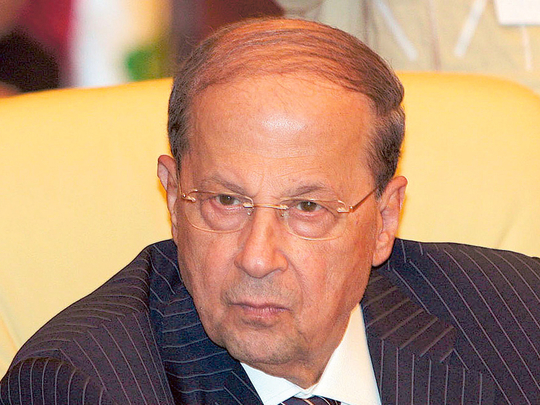
Beirut: Undeterred by steady reversals that marked his checkered military and political careers, the head of the Free Patriotic Movement (FPM), General Michel Aoun, insisted that the latest parliamentary extension—which was voted 95-2 with 31 abstentions—was unconstitutional. Although Aoun and his FPM deputies, which fielded 19 votes, stayed away, what was troubling was the 81-year-old’s obsession to become President of the Republic. Given Lebanon’s statutory requirements, in which representatives elected the head of state, Aoun seldom asked himself how would his selection be constitutional when the 128 electors he needed were presumably unlawful?
In any objective analysis of this latest decision, there was little doubt that Aoun and the FPM gained in popularity over the short-term because a majority of the country’s Christian populations backed his view that parliamentary elections were sacrosanct, and that they should be held regardless of security conditions. Conversely, it was also safe to affirm that the Lebanese Forces (LF) lost some popularity because the party’s leader and March-14 presidential candidate, Samir Geagea, changed his position at the last minute and supported the extension. The LF thus became one of only two Christian parties to vote for the extension—the other was the pro-March-8 Marada Party led by Sulaiman Franjieh—despite Patriarch Mar Bisharah Butros Al Ra‘i’s declarations that the decision was unconstitutional and, thus, illegal. Geagea insisted that he and the LF saved the country from a full political vacuum even if the exercise amply illustrated that a deep and perhaps irredeemable division was now a reality.
Interestingly, day-after assessments identified Aoun in a catastrophic position, for at least two major reasons. First, because neither the Speaker not the overwhelming majority of parliamentarians—95 out of 128—took his advice to reject the additional term. To be sure, several acolytes promised to challenge the extension before the Constitutional Council, but Aoun faced a conundrum: would a partisan Council ignore the FPM for the second time in as many years? Lest we forget, the Council, which is split evenly between Christians and Muslims, required eight of its 10 members to attend, deliberate, and issue valid decisions. In 2013, two Shiite and one Druze member failed to show up, which voided the entire process. Chances were excellent that a similar outcome was guaranteed this time around since Speaker Berri and Druze chieftain Walid Jumblatt favored the extension and could, once again, keep “their” delegates away from the Council. Aoun’s second dilemma was even greater than many assumed because not challenging this extension would dissipate his temporary popularity as it would make him look weak among his constituents.
Aoun faced an equally ominous quandary after the Hezbollah Secretary-General Hassan Nasrallah finally designated him as the official March-8 candidate that, for all practical purposes probably ended the Aoun presidential quest. In fact, because the General repeatedly claimed that he would only run for office if he were a consensus candidate, and given huge differences between March 8 and March 14 ideologies, it was now probably impossible to settle on him as a consensus candidate. If the only two announced candidates, Samir Geagea and Henri Helou, were excluded on account of their inabilities to become consensus nominees either, the same logic also applied to Aoun. Of course, the irony was that his putative candidacy came to naught at the hands of the party that presumably chose him, which gave credibility to the notion that Hezbollah was not happy with the draw but did so for purely political reasons against the March-14 nominee.
On Friday, Al Nahar daily reported that Speaker Berri told his visitors that he was ready to extend Parliament’s term not by 2 years and 7 months as it happened but by 30 years, which redefined “democratization” as Lebanese politicians understood it. General Aoun added to this august elucidation process by insisting that at 81, he was Lebanon’s salvation, and that the presidency was his no matter what.
Although Aoun served as Prime Minister from September 22, 1988 to October 13, 1990, when two rival governments contended for power at the height of the civil war, his “Liberation War” against Syrian occupation; subsequent flight to France that meant abandoning hundreds of unarmed soldiers and civilians who were mauled down by Damascus; anti-Sunni positions after the 2005 withdrawal of Syrian troops that allowed him to return to Lebanon; his fatidic 2006 Memorandum of Understanding with Hezbollah; and a controversial 2009 visit to Syria at the invitation of the Ba‘ath regime; all sealed his fate.
Most Lebanese parliamentarian who would presumably be called to cast a vote between now and June 20, 2017 to elect a head of state understood this, though the notion escaped Aoun and, given the current political obduracy, it was difficult to see when Parliament could select a new president in the near future.












